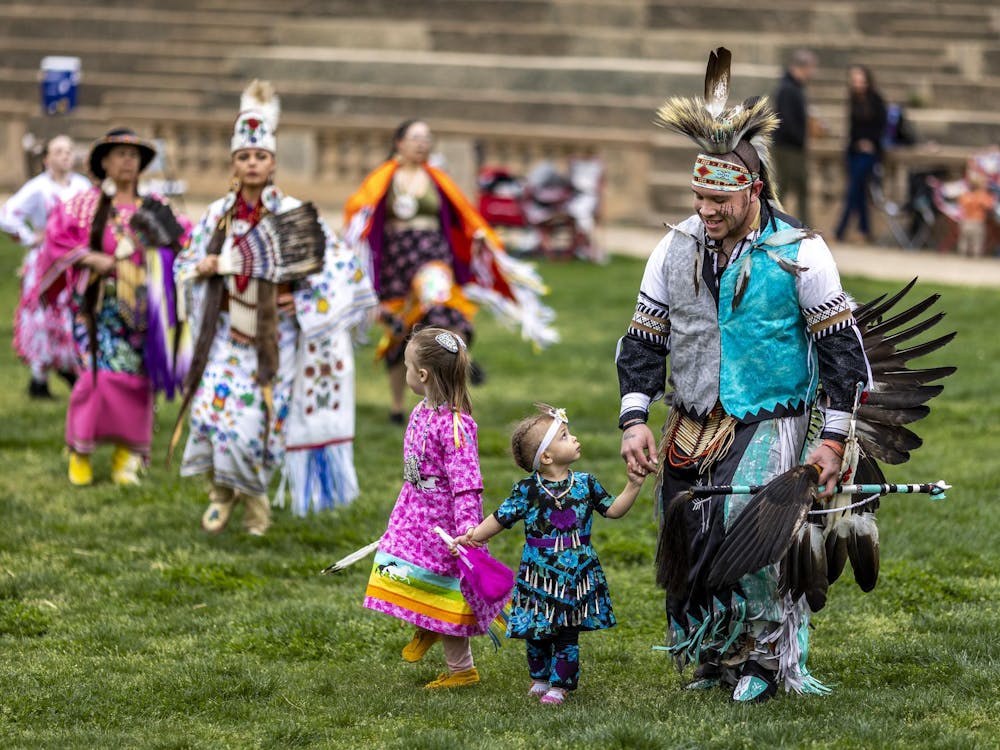Girl runs. Girl falls in mud. Boy witnesses fall. Boy helps girl. Boy offers Band-Aid. Girl blushes. Boy makes jokes. Boy says girl should run track. Girl replies, “Thanks, but it looks like mud wrestling is more my thing.”
So goes the first few pages of a young adult fiction novel lying around in the Cavalier Daily office — hey, sometimes we need a bit of angsty literature for inspiration — in which the slightly nerdy protagonist is swept off her feet by a cute boy and into the previously unchartered territory of high school romance. A fairly standard setup for the genre many of us once-hopeful girls used to get through our painfully awkward years.
Don’t get me wrong, I’m not here to belabor my feelings about relationships (does food count?) and love (I think I saw it in a movie once). I’m not going to harp on the unrealistic expectations fostered by these books. I’ve more or less accepted my friend’s diagnosis that I am “actively platonic.”
I just want to talk about being funny.
In my most humble opinion, it is way harder to be funny in conversation than, say, in a Life column. There’s something priceless about the extra second — or minute or hour or day, depending on your dedication to this Cavalier cause — to choose your words more carefully, to revise and edit and perfect your phrasing. It has immense implications for delivering a point with the perfect mix of snark, sass and wit.
Put me in a real-time conversation, and an attempt to be humorous gets lost, misheard or misinterpreted — or worse, it is interpreted correctly, but the confused, appalled and pitying faces tell me I’ve missed the mark. In those moments, I find myself using my three genie’s wishes on an invisibility cloak, a conversational backspace key and an agreement between my skin and me that “rosy” is not only a sexier word than “tomato,” but also a better skin tone.
If you see me rubbing lamps in the near future, it’s because none of these wishes have come true yet.
I envy the Katniss Everdeens of humor and wit, whose spontaneous deliveries of clever strings of words squarely hit their marks and leave audiences rolling with laughter. Some people are naturally gifted with quick, ingenious replies that mix inside jokes, cultural references and appropriate intonation. In contrast, I was personally excited by my well-timed use of “too soon?” the other day — and that’s not even a creative line.
I don’t think I am alone in this struggle, though. Don’t we increasingly rely on written words to convey our humor, rather than conversations? Twitter, Facebook statuses, text messages and emails are all forms of written communication and comedy — I’ll bet you’ve spent an embarrassingly significant amount of time drafting up one or all of these at one point in your life — more likely, at least twice in the past week.
Everyone loves and appreciates the person with the perfect instinctive delivery. Yet while spoken humor gets an immediate response, it is also ephemeral. I’ll probably remember my “too soon” moment — I’m still unabashedly proud of it — but I doubt anyone else will. The written word, on the other hand, can be preserved indefinitely.
So back to our muddy girl and flirty boy. Hopefully I’m not alone in recognizing my response would be a lot less effortless and a lot more awkward. I envision myself saying something along the eloquent lines of, “Well, uh, I’m pretty uncoordinated, and, well, practice conflicts with marching band practice, so…” First impression? Nailed it.
But, you know what? In real life, I bet the author herself would respond in a similarly uncomfortable way. She had the benefit of thinking through her character’s response, of drafting and rewriting a witty reply. That dialogue is not a model of conversation. It’s the writer’s advantage.
So stay hopeful, you witty writers and frustrated conversationalists, you drafters of emails and tweeters of tweets. Write on.
Caroline’s column runs biweekly Thursdays. She can be reached at c.trezza@cavalierdaily.com.




